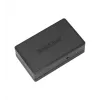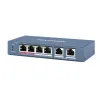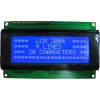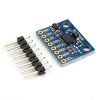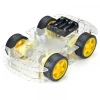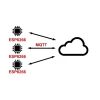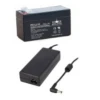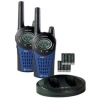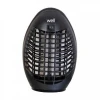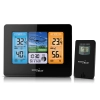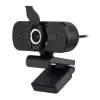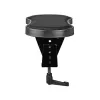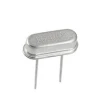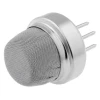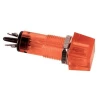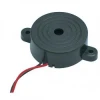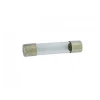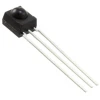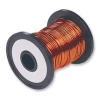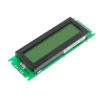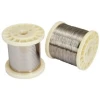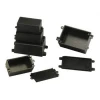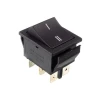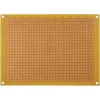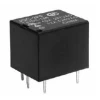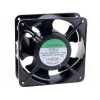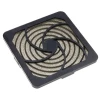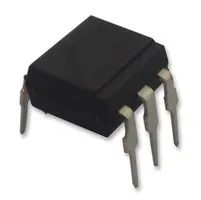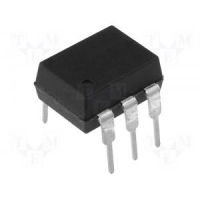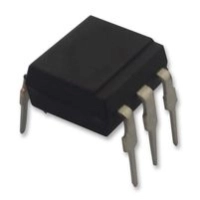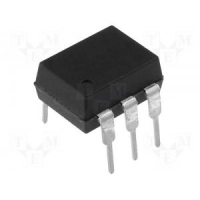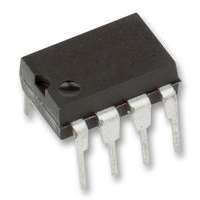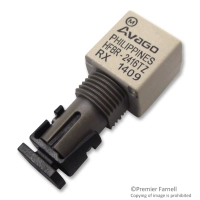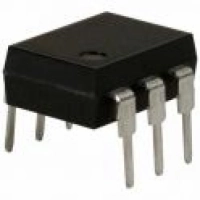4N36 Vis=1500V Vceo=30V Optron
SKU: 4N36
- 0.90 €
-
- Customer price 0.86 € -5%
- Log in and get at least a 5% discount
Pealadu
Tallinn, Peterburi tee 90F
Tallinn, Peterburi tee 90F
3 pcs
Peterburi tee Oomipood
Tallinn, Peterburi tee 90F
Tallinn, Peterburi tee 90F
2 pcs
Järve keskuse Oomipood
Tallinn, Pärnu mnt. 238
Tallinn, Pärnu mnt. 238
2 pcs
Lõunakeskuse Oomipood
Tartu, Lääneringtee 39
Tartu, Lääneringtee 39
0 pcs
Põhjakeskuse Oomipood
Rakvere, Haljala tee 4
Rakvere, Haljala tee 4
0 pcs
Kaubamajaka Oomipood
Pärnu, Papiniidu 8
Pärnu, Papiniidu 8
0 pcs
The 4N36 Optocoupler provides exceptional electrical isolation, effectively breaking the connection between signal source and receiver to eliminate electrical interference. This versatile, general-purpose optocoupler is an excellent choice for protecting circuits from voltage spikes and creating isolation between circuits.
Key Features
- Isolation: Provides high-voltage electrical isolation, safeguarding circuits from damaging voltage spikes.
- Construction: Expertly composed of a gallium arsenide infrared LED and an NPN silicon phototransistor for reliable performance.
- Package: Available in convenient 6-pin DIP and SMD packages to suit various application needs.
- Compatibility: Seamlessly interfaces with common logic families, ensuring broad usability.
- Agency Approvals: Carries prestigious UL, cUL, DIN EN 60747-5-2 (VDE 0884)/DIN EN 60747-5-5, BSI: EN 60065, EN 60950-1, FIMKO, and CQC approvals, guaranteeing quality and safety.
Ideal Applications
- AC mains detection
- Reed relay driving
- Switch mode power supply feedback
- Telephone ring detection
- Logic ground isolation
- Logic coupling with high-frequency noise rejection
- Microcontroller output to control high current components
Usage Instructions
To utilize the 4N36 optocoupler, connect the anode of the IR LED to the positive output of a component (e.g., IC or microcontroller) and the cathode to the negative or ground. A current-limiting resistor is crucial between the output of the IC/microcontroller and the anode of the IR LED. When the phototransistor detects light from the IR LED, the collector and emitter pins connect, linking anything connected to pins 4 and 5.
Additional Benefits
The 4N36 is an excellent choice for protecting circuits from voltage spikes, creating isolation between circuits, and detecting AC or DC current. It's particularly well-suited for use at the output of microcontrollers and ICs with low output current, enabling these devices to effectively operate high-current components like high-power transistors.
Key Features
- Isolation: Provides high-voltage electrical isolation, safeguarding circuits from damaging voltage spikes.
- Construction: Expertly composed of a gallium arsenide infrared LED and an NPN silicon phototransistor for reliable performance.
- Package: Available in convenient 6-pin DIP and SMD packages to suit various application needs.
- Compatibility: Seamlessly interfaces with common logic families, ensuring broad usability.
- Agency Approvals: Carries prestigious UL, cUL, DIN EN 60747-5-2 (VDE 0884)/DIN EN 60747-5-5, BSI: EN 60065, EN 60950-1, FIMKO, and CQC approvals, guaranteeing quality and safety.
Ideal Applications
- AC mains detection
- Reed relay driving
- Switch mode power supply feedback
- Telephone ring detection
- Logic ground isolation
- Logic coupling with high-frequency noise rejection
- Microcontroller output to control high current components
Usage Instructions
To utilize the 4N36 optocoupler, connect the anode of the IR LED to the positive output of a component (e.g., IC or microcontroller) and the cathode to the negative or ground. A current-limiting resistor is crucial between the output of the IC/microcontroller and the anode of the IR LED. When the phototransistor detects light from the IR LED, the collector and emitter pins connect, linking anything connected to pins 4 and 5.
Additional Benefits
The 4N36 is an excellent choice for protecting circuits from voltage spikes, creating isolation between circuits, and detecting AC or DC current. It's particularly well-suited for use at the output of microcontrollers and ICs with low output current, enabling these devices to effectively operate high-current components like high-power transistors.
Number of Channels: 1
Optocoupler Case Style: DIP
Number of Pins: 6
Isolation Voltage: 5000 Vrms (5300 Vrms some sources)
Collector-Emitter Voltage (Vceo): 30V (80V some sources)
Input Diode Forward Current (Continuous): 60 mA
Phototransistor Collector Current (Continuous): 100 mA (150mA some sources)
Input-Output Coupling Capacitance: <0.5 pF
Collector-Base Voltage: 70 V
Emitter-Base Voltage: 7 V
Input Diode Reverse Voltage: 6 V
Infrared-Emitting Diode Power Dissipation: 100 mW
Phototransistor Power Dissipation: 300 mW
Turn-on Time: 12 µs (7 µs typical some sources)
Turn-off Time: 12 µs (7 µs typical some sources)
Current Transfer Ratio (CTR): 50% to 100% @ If=10mA (100%@10mA some sources)
Optocoupler Case Style: DIP
Number of Pins: 6
Isolation Voltage: 5000 Vrms (5300 Vrms some sources)
Collector-Emitter Voltage (Vceo): 30V (80V some sources)
Input Diode Forward Current (Continuous): 60 mA
Phototransistor Collector Current (Continuous): 100 mA (150mA some sources)
Input-Output Coupling Capacitance: <0.5 pF
Collector-Base Voltage: 70 V
Emitter-Base Voltage: 7 V
Input Diode Reverse Voltage: 6 V
Infrared-Emitting Diode Power Dissipation: 100 mW
Phototransistor Power Dissipation: 300 mW
Turn-on Time: 12 µs (7 µs typical some sources)
Turn-off Time: 12 µs (7 µs typical some sources)
Current Transfer Ratio (CTR): 50% to 100% @ If=10mA (100%@10mA some sources)
4n35.pdf
Download
Download



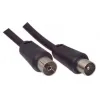
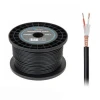
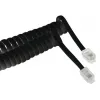






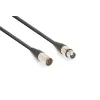







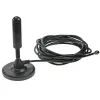
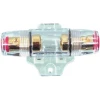
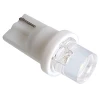
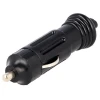






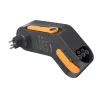
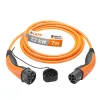
-100x100.webp)
